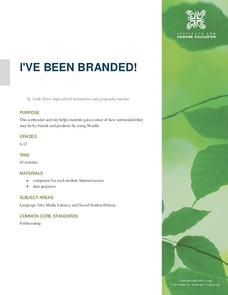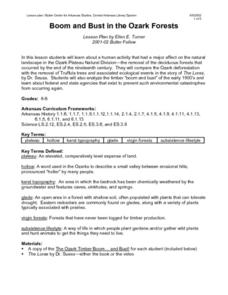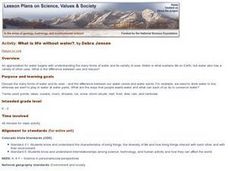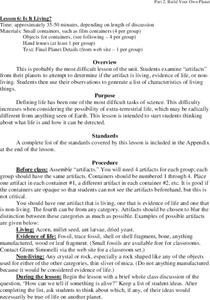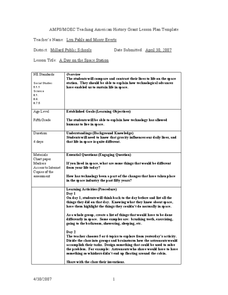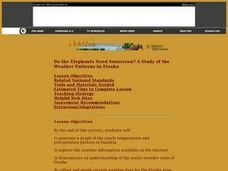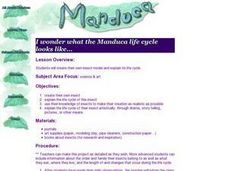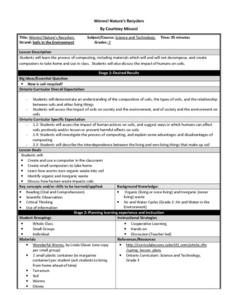PLS 3rd Learning
Priceless
The message that buying things brings happiness is everywhere. Teenagers are not immune to this marketing strategy and benefit from reflecting on the relentless pressure to spend. This exercise invites young adults to consider the value...
Perkins School for the Blind
Safety Skills
Learning how to stay safe in a dangerous situation is of utmost importance, especially when you have a visual impairment or special need. The teacher makes up a set of dangerous scenario cards based on the provided set of guiding...
Teach-nology
Being a Comedian Isn’t All Laughs
What's it like to be a comedian? Find out with a short cloze passage about the life of a comedian. Kids use eight words at the bottom of the page to fill in the blanks throughout the passage.
Biology Corner
Technology and Inventions Project
Technology—what exactly is it? Find out with a project designed to inspire the inner inventor in us all. The activity begins with a captivating podcast and a search of multiple websites that display different inventions and technology,...
Science Matters
Spaghetti Fault Model
Does increasing the pressure between two moving plates provide a stabilizing force or create more destruction? The hands-on lesson encourages exploration of strike-split fault models. The sixth lesson in a 20-part series asks scholars to...
Institute for Humane Education
I've Been Branded!
How many pairs of Nikes® or Apple® products are in the average American home? What makes someone buy one particular type of laundry detergent over another? Scholars grapple with these questions as they develop a list of brands they use...
Curated OER
Boom and Bust in the Ozark Forests
Here is a hard-hitting, cross-curricular activity on the effects that the deforestation of the Ozark forests in the 19th century had on the people, animals, and ecosystems of the area. The Dr. Seuss book The Lorax is used as a way of...
Curated OER
Snowy Similes
The class defines similes after creating a KWL chart about them. Groups rotate through a series of stations in which they creatively complete similes. They create a picture booklet that contains similes. However, the booklet topic and...
Curated OER
Sweet Clara and the Freedom Quilt: The Real Story
Students learn how slaves communicated with each other. In this slavery and freedom instructional activity, students learn how slaves used quilts as maps, learn what different quilt patterns meant, draw a picture for their class freedom...
Curated OER
Shizuko’s Daughter: Unsent Letter
Have you ever wanted to tell a character what you really thought of him or her? Use a lesson based on Kyoko Mori's Shizuko's Daughter to encourage learners to write a letter in response to a character's actions.
IREM
Conflict Management Styles Assessment
How do you prefer to handle conflict? And what does your approach say about you? Although not a validated, or scientific instrument, this assessment is sure to generate lively discussion.
Curated OER
The Fabled Maine Winter
Learners graph and analyze scientific data. In this research lesson plan students use the Internet to obtain data then draw conclusions about what they found.
Curated OER
Tree Cookies
You will find a viewer-friendly PowerPoint on the growth rings and other features found in a cross-section of a tree trunk, affectionately known as a "tree cookie." A few worksheets are provided for practice counting tree rings and a...
Curated OER
What's Wild?
Third graders examine pictures of animals before deciding if it is a wild animal or a domesticated animal. They discuss the difference between the two types of animals, where they live, what they eat, and what they need to survive. Using...
Curated OER
What is Life Without Water?
Students differentiate between how they use water in response to a need and how they use water for pleasure. They read books about water, participate in class discussion and illustrate their observations.
Curated OER
Is It Living?
Students investigate the definition of life and alive in the context of a unit that is involved with building their own planet. They participate in a class discussion about defining life, and in small groups analyze artifacts to...
Curated OER
A Day on the Space Station
Fifth graders discover what it would be like to live in space. In this technological advancements lesson, 5th graders discuss how space life would be different from Earth life. Students also identify how technology has made life in space...
Curated OER
Smallest Thing
Students compare characteristics of myobacteria and viruses to determine which is the smallest life form. They read and discuss an article that presents different viewpoints on the definition of life to determine their own viewpoint.
Curated OER
What Parts Are There to a Plant?
Learners explore botany by completing plant science worksheets. In this plant anatomy lesson, students examine real vegetables in class using magnifying glasses. Learners identify the plants anatomy and complete worksheets discussing...
Curated OER
From High School to the Real World
Twelfth graders work in small groups and use any resources they wish to find the answer to the question "What skills that I learned in high school will I use in real life?" They present their answers/findings to the rest of the class on...
Curated OER
Do the Elephants Need Sunscreen? A Study of the Weather Patterns in Etosha
Learners analyze the weather patterns in Namibia. They create a graph of the yearly temperatures and use the internet to gather information. They discuss how the weather goes in cycles in the area.
Curated OER
I Wonder What the Manduca Life Cycle Looks Like
Young scholars create their own insect, build a model of it and explain its life cycle.
Curated OER
Blubber Gloves
The ways that animals adapt to their environments is quite remarkable. In this life science lesson plan, fifth graders take a look at some of the ways that aquatic animals that live in Arctic or Antarctic waters survive. They perform an...
Curated OER
Worms, Nature's Recyclers!
Students study what worms need to survive in different environments. They study how worm composting improves soil and reduce waste. They discuss composting techniques and present a puppet show about a worm's life.







